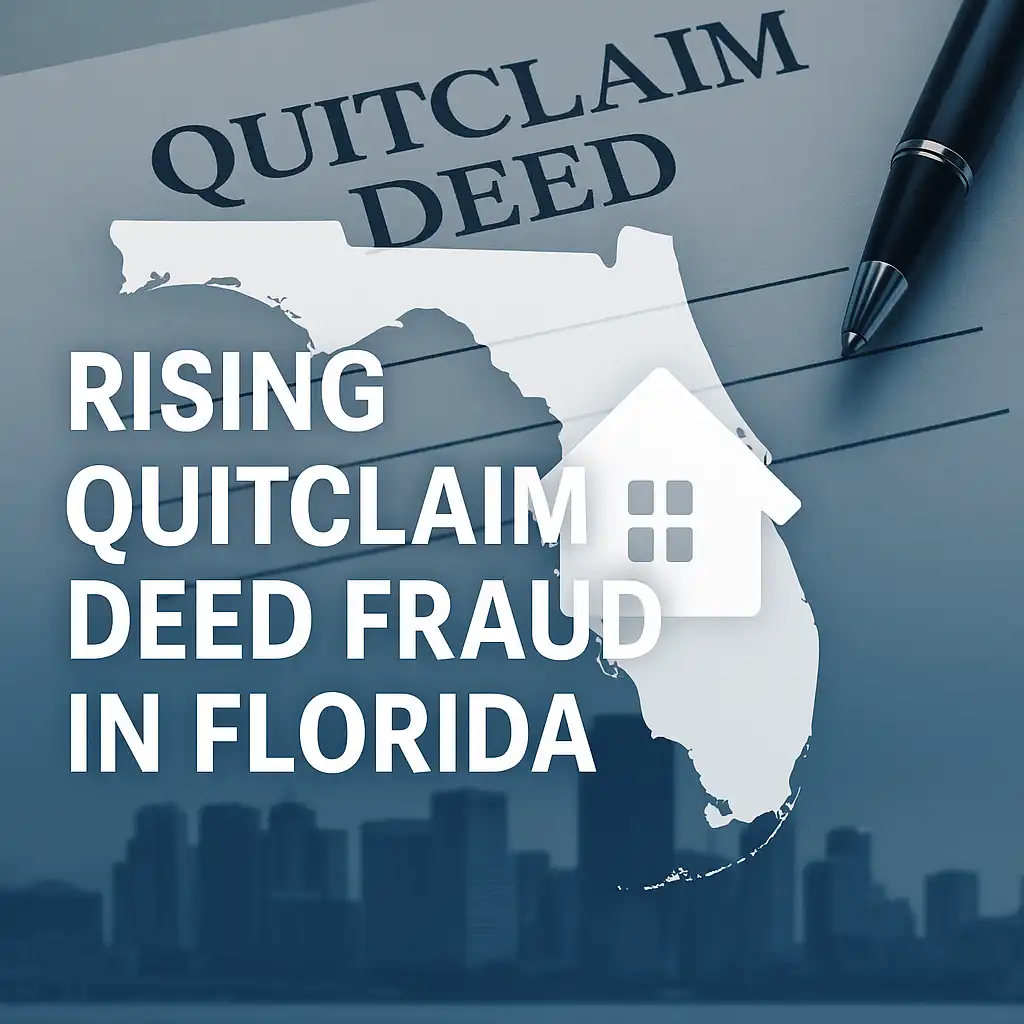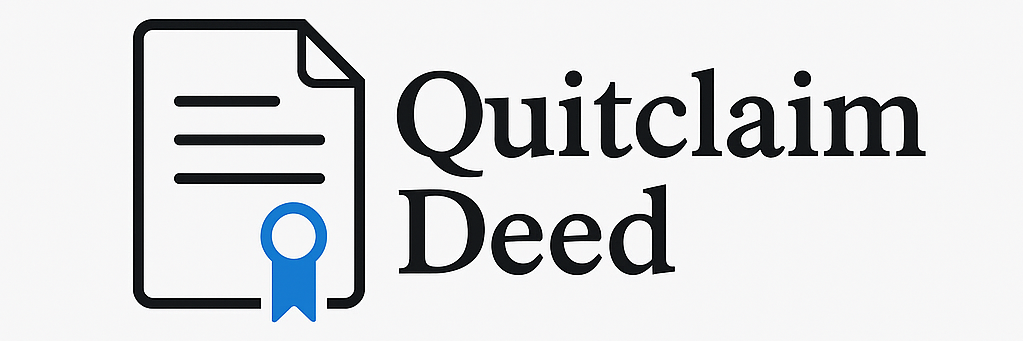
Florida has seen a sharp rise in property fraud over the last several years, with a particular increase in quitclaim deed-related scams. In many cases, fraudsters forge quitclaim deeds, file them with unsuspecting county recorders, and effectively steal properties. According to recent warnings from the FBI and Florida Realtors, these crimes — often referred to as “home title theft” — have affected tens of thousands of property owners nationwide, with significant activity right here in Florida. Fortunately, counties across the state are taking action through public awareness campaigns and title alert systems to combat this threat.
This article explores the growing crisis of quitclaim deed fraud in Florida, highlighting the FBI’s recent findings, specific county-level initiatives like those in Polk and St. Johns, and practical steps Floridians can take to protect their homes.
FBI and Florida Realtors Raise the Alarm on Quitclaim Deed Fraud
On June 20, 2025, Florida Realtors published a report amplifying an urgent FBI warning about an alarming trend: a nationwide surge in property fraud committed through forged quitclaim deeds. According to the FBI, between 2019 and 2023, more than 58,000 victims reported cases of home title fraud, with losses totaling over $1.3 billion (The Legal Description).
In many cases, scammers identify unoccupied or vulnerable properties—especially those owned by seniors, out-of-state investors, or the recently deceased—and submit fraudulent quitclaim deeds that transfer the title into their own names. Once recorded, the scammer can resell, lease, or borrow against the property as if they were the legitimate owner.
The nonprofit legal education organization The Fund, along with the FBI and Florida legal professionals, emphasize that the ease of filing documents with county clerks — often with no identity verification or authentication — enables these crimes.
Key Warning Signs:
- You stop receiving property tax bills.
- Tenants or unknown individuals occupy a property you own.
- You receive foreclosure notices for a property you haven’t mortgaged.
Experts warn that Florida’s popularity with retirees, combined with its relatively simple deed recording system, makes it especially attractive for scammers.
Florida Counties Take Action: Title Alert Systems
To combat these growing threats, several of Florida’s most populous and fastest-growing counties have implemented free title alert systems. These systems notify residents via email or text when any new land record—such as a deed or mortgage—is filed in their name.
Polk County
Polk County, home to cities like Lakeland and Winter Haven, offers a robust Property Fraud Alert service. In one high-profile case, the alert system successfully identified a forged quitclaim deed filed against a property in Tampa.
Hillsborough County
Hillsborough County, which includes Tampa, has a Recording Notification Service through the Clerk of Court’s office. Given Tampa’s booming housing market and high property values, this service is crucial for local property owners.
St. Johns County
St. Johns County’s Clerk of Court, Brandon Patty, reported that nearly 30,000 residents had enrolled in the alert system by mid-2025. The system helped prevent at least one forged deed filing in St. Augustine (Jacksonville Today).
Duval County
Duval County, which includes Jacksonville, offers a program called Property Check through the Clerk of Courts office. You can enroll at duvalclerk.com.
Why Florida Is a Hotspot for Quitclaim Deed Fraud
1. High Volume of Real Estate Transactions
Florida’s real estate market is one of the most active in the country, especially in areas like Miami-Dade, Broward, Hillsborough, and Orange counties. High transaction volume makes fraudulent deeds easier to slip into the system.
2. Unoccupied or Vulnerable Properties
Properties owned by snowbirds, elderly residents, or investors are often vacant for long periods. This provides the perfect opportunity for fraudsters to commit title theft without immediate detection.
3. Minimal Recording Requirements
Florida does not require in-person ID verification when filing a deed. A document with forged signatures and a notary stamp can be recorded without further authentication.
Legal Reforms to Address Deed Fraud
House Bill 1419: Effective July 1, 2023
To strengthen protections, the Florida Legislature passed HB 1419, now codified in multiple statutes:
- Chapter 689.025: Establishes a standardized quitclaim deed form.
- Chapter 695.26: Requires witness names and addresses to be printed on deeds.
- Chapter 28.47: Requires clerks to provide free deed alert systems statewide.
- Chapter 65.091: Simplifies quiet title actions for fraud victims.
Sources: Maynard Nexsen, The Fund
What You Can Do to Protect Your Florida Property
1. Enroll in a County Alert System
This is the most effective protection available. Register at your county’s Clerk of Courts website:
2. Check Property Records Regularly
Use your county’s public record search to look for your name or parcel ID at least once a month.
3. Monitor Your Mail
Watch for bills, foreclosure notices, or correspondence addressed to someone else at your property.
4. Ask About Title Freezes
Speak to a real estate attorney about voluntary title flags if you own vulnerable or out-of-state property.
5. Report Suspicious Activity Immediately
If you suspect fraud:
- Contact your local clerk and law enforcement.
- File a complaint with the Florida Attorney General.
- Hire an attorney to initiate a quiet title action.
Final Thoughts
The surge in quitclaim deed fraud in Florida has put thousands of property owners at risk. Thankfully, new legislation and alert systems are helping level the playing field. But homeowners must take the lead by staying informed, watching for signs of trouble, and registering for protective tools now widely available in major counties like Polk, Hillsborough, St. Johns, and Duval.
Don’t wait until it’s too late. Protect your property today.
Sources:
floridarealtors.org | thelegaldescription.com | polkcountyclerk.net | jaxtoday.org | hillsclerk.com | duvalclerk.com | maynardnexsen.com | myfloridalegal.com


Leave a Reply